Bubblin’ Up: A Pleasure
Following a blissful debut album on Jaar's Other People, Mark Hurst discusses his inspirations and unique production methods.
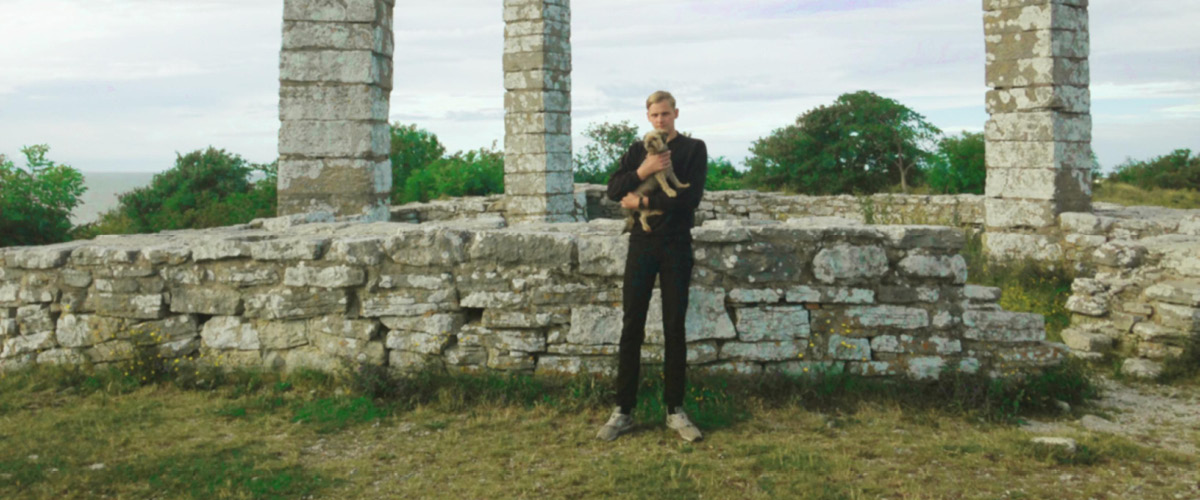
Bubblin’ Up: A Pleasure
Following a blissful debut album on Jaar's Other People, Mark Hurst discusses his inspirations and unique production methods.

Mark Hurst (a.k.a A Pleasure) divides his time between waiting tables and making music. While the former does not sound especially conducive to a successful career in the latter, it’s possible that we would not be introducing you to Hurst if it were not for his work at his local Brooklyn sushi restaurant. Although he has been making music for several years, uploading it onto his personal SoundCloud account, his only releases stem from a chance meeting with Nicolas Jaar, who signed Hurst to his Other People imprint after discovering him when dining out before his infamous Boiler Room show in 2013.
The latest product of this longstanding relationship is Jream House, Hurst’s blissful debut full-length that is equally—if not more—spiritual and emotionally provocative as his debut EP on the imprint, dated March 2014. The press release explains that the album was recorded using a process of “numerical transposition” in which names of composers and groups are converted into drum patterns. To learn more about the inspirations behind it, including these intricate production techniques and his relationship with Other People, XLR8R visited Hurst in his analog-heavy home studio just last week.
How long have you been playing music, and what are your earliest musical memories?
I guess I’ve been making music since I was at least 13 or 14—since I was a kid. The first album I ever bought was Björk’s Debut, which came out in 1993 and I bought the tape. When I came home, I wasn’t allowed to listen to it because my brother made me listen to all The Sugarcubes’ albums first. He was about ten years older than me, and would tell me when I pronounced Björk wrong. I guess my brother would do that with everything over the years—to make sure I knew something about it beforehand, and listen to the older stuff first. As I got older and got into high school, it just became a habit. I was always asking questions! I was learning bass, and I joined my high school jazz band, where I would always get in trouble for playing all this noisy stuff. The instructor would be like, “Whatever you do, don’t ever play that free-jazz shit ever again.” And then I would ask “What’s free jazz?” Around that time, I was playing in punk and hardcore bands too.
So even at school you had this passion for music?
I remember that my class instructor gave the option that I could either take the final—which was this music-theory test—or write my own composition, which I chose. When it came time to hand something in, all I had was all these things to be improvised, for which I drew a series of Venn diagrams. My teacher brought out this old computer that was covered in dust in the closet of the music room. I can’t even remember the name of the program that I used—it was some meaty composition software. He told me I was the only student he’s ever had that has been interested in something like that, and to use the computer to make my composition. I spent months in a basement with this old Apple computer, which I guess you can consider to be my first electronic-music piece. I was so interested in studying that stuff, yet the other counterpoint for music in my life was playing in punk bands—it didn’t really meet up. It took a long time for both kind of worlds to collide.
The earlier stuff you uploaded to your Soundcloud is very different from what you are producing now. When did you actually start producing?
That is certainly true. I’d been making music for a long time before I started uploading tracks to SoundCloud in 2010. For a long period of time, before I actually started working on music, I was taking care of my family who had fallen ill—my Dad had brain cancer, and my Mom suffered from a variety of health disorders. During that period, the music I could do was limited. I was just doing slowed-down re-edits, and strange atmospheric, ambient pieces. It was one of those things where making stuff like that was more of a mental exercise. I think that what really changed was that as I was getting my hands on more electronic equipment that I could use, as opposed to just sitting on the computer, and it started to change the music that I was making. I would always have a guitar, bass, piano around, but I felt limited to a huge desktop with electronic music. I’ve had a sampler for over a decade, but it was able to manifest in a different way when I started to collect more equipment.
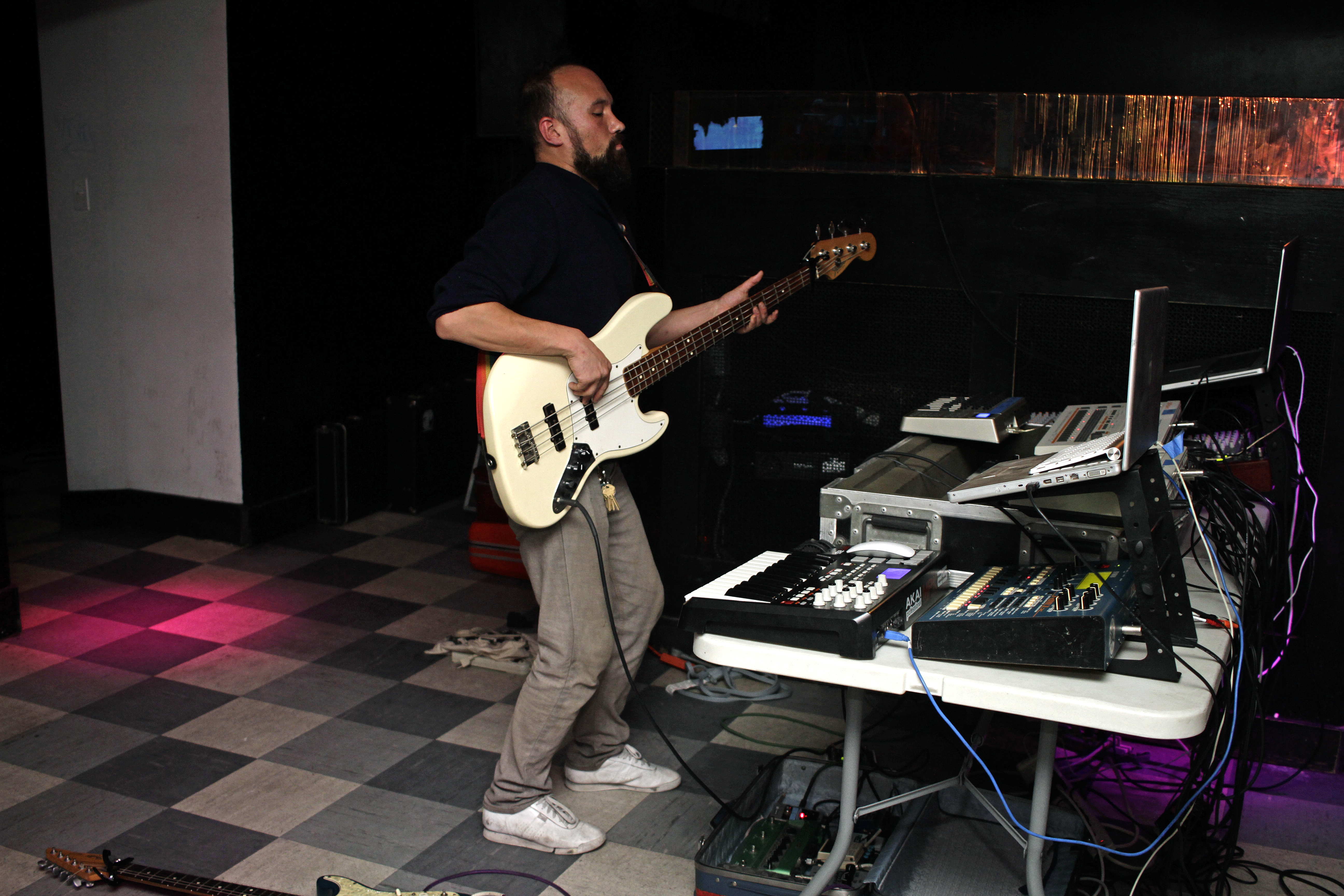
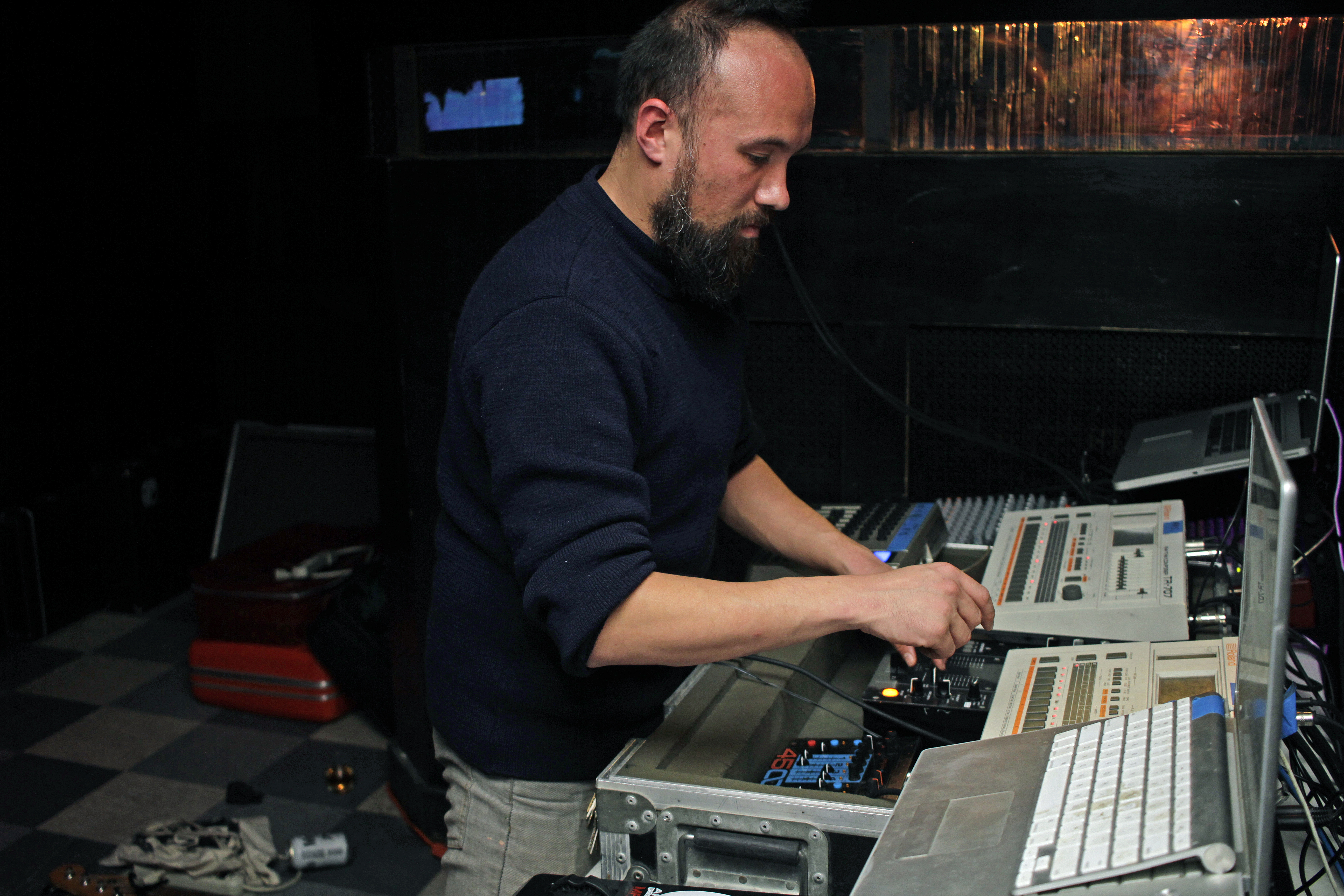
Is it quite an elaborate hardware setup that you have now?
That’s correct. It is a very elaborate setup. Within New York, I’ve been known to have really large live sets! I use a variety of samples and things like bowed cymbals, and contact microphones to create various synth-sounding effects. I love the electro-acoustic work with contact mics—I often tape up a contact mic to a drum cymbal, and bow it with a violin bow while running it through a variety of pedals to create different sounds, often emulating a synth.
The press release for your new album says that you “convert the names of some of your favorite bands and composers into drum patterns.” Can you just describe exactly what you mean by this in greater detail?
I use the Magic Square of Venus to program the TR-707. My intentions are not really occult-based, rather just formulaic—I have been an avid reader of the occult since my youth, but never had really thought of bridging the two together as a musical practice. Normally you would put forth a desire into the Magic Square of Venus, whether it be a phrase or someone’s name, but here I place the names of things I love and see what numeric values I receive, then I use that data to program on the 707. Each letter in the word or name corresponds to a number in the alphabet. When programming on a drum machine, there are the numbers 1-16 as steps for programming beats. I just use this method to come up with those numbers. I always go through this kind of number mashing in my head when I am playing live.
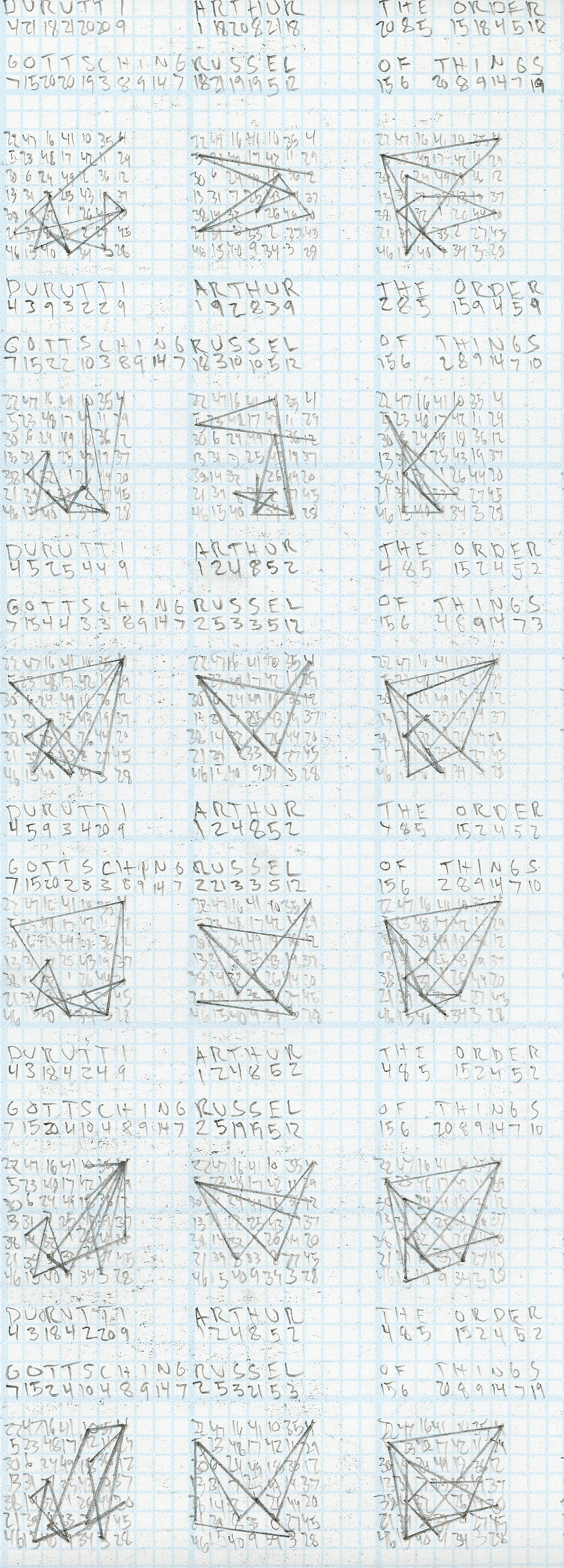
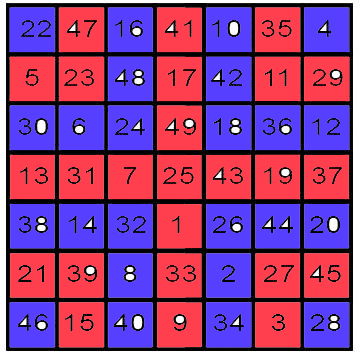
The music you are producing now is very atmospheric, almost spiritual. Is the sound that you have now something that you have always envisioned in your head, or has been a constant case of trial and error?
It’s funny—I think it’s actually been a constant struggle of trial and error. The problem that I always run into even today, is that a lot of electronic equipment or gear does not really work the way I want it to!
You can definitely hear techno and electro in your new album—but it is also quite removed from the dancefloor. To what extent was dance music an influence in your music?
I do listen to a lot of dance music, but my new album is not a dance record. Well, it’s not a dance record, but it’s also not not a dance record. People think, “Oh you are playing guitar so its like rock?,” but obviously my work is removed from the notion of what rock and roll is. There is this thing that Manuel Göttsching says poignantly in the past: “This combination of doing something that is improvised on the spot and doing something that is composed and minimal.” I am really into a lot of avant-garde and minimal composition, and the fact is that, structurally speaking, a lot of these songs are much like dance music. I’ve always seen the two as the same. I never posted it online, but I had a mix that was nothing but Steve Reich and Kerri Chandler. Those two things are totally equivocal in my brain—there is a song Kerri does called “Six Pianos,” which is an ode to Steve Reich’s “Six Marimbas.” It’s my favorite Chandler track by a long shot. Anyway, there has always been a relationship between the two, and I’ve always looked at them the same. It’s not that I look at it as dance music, but rather a form of avant-garde composition.
Where does your name, A Pleasure, stem from?
It’s kind of hilarious—the first time I played in New York around 2010, I had thought about calling myself A Burden, because I had so much gear with me. I was talking to my friends about it, and I kind of liked it, because aesthetically it was similar to Burial. As I thought about it more, it just seemed so negative. I was talking to my co-worker, and off-the-cuff I just said, “I want to be called something like “A Pleasure.”” She started laughing and told me it was a great idea! I thought to myself, “Oh God, she doesn’t have the best judgment.” I always imagined I would change it when I thought of something better, but it has just stuck.
How did your relationship with Nicolas Jaar and his Other People label come about?
So, for the past five years I’ve been a full-time waiter at a restaurant here, and I was Nicolas Jaar’s waiter—no joke! It was right as he was doing his Boiler Room set at the Market Hotel a couple of years ago. I ended up being there that night. I was working in the restaurant, and it was slow during lunch, so I could play whatever music I wanted. I was playing parts of this EP that I had recorded in my bedroom, and Nico was eating his lunch. I didn’t even really recognize him. Eventually, I asked him if I could get him anything else and he wanted to know what we were listening to. I told him it was me, and asked if he wanted another drink. He said that it couldn’t be me, and that it was a re-edit—so I told him I performed it live using a TR-707, and playing piano at the same time, before asking if he did want another drink. As it happens, he really liked it, and he said that if I was able to get off work, I should come hang out with him at Boiler Room because he wanted to talk some more. That’s the story—it’s like a joke, the New York dream of getting discovered, but that is actually what happened!
So is that the same music that has now been released on the label?
No, it wasn’t. When I met him, I had basically just started the process of the record that has come out now. I wanted to record something new, rather than something I had already done. Nico was cool with that because I knew that, while working on this record, I would be going through these other songs that wouldn’t end up on the actual album. You could say that some of the songs that made it onto the album were a work in progress prior to me meeting Nico. I had come up with this numerical transposition in drum programming system just before I met him—maybe only a few months before.
So how long did the album actually take to produce?
It took just over a year. I had a few set-backs—My father went into the hospital when I started, and I had suffered post-concussive disorder after being attacked late at night. I was distracted, could not concentrate, and suffered issues with temporary memory loss, forgetting something from just a few minutes ago. Drawing and writing things down in a notebook became very helpful—I started from my notebook first, by drawing Sigil patterns using the 7 X 7 Magic Square of Venus.
How much input did Nicolas have in the end?
He was great! I would be sending him tracks through email, even when they were not finished—but I had pretty much free reign. I think “Durutti Gottsching” was originally about 17 minutes, and Nico was the one who stepped in to say that we could get it down to 12! He could also tell that I had been holding back on stuff, because I thought it was too personal, or that it was not going to fit right. On the track “Grace,” one of the samples I used is actually from the medical equipment that my father was attached to in the hospital. I recorded all these sounds that I didn’t even know what to do with, and I just had these files sitting around on my computer. It was a way for me to deal with everything. I think that there is always this subtext in my music that is extremely personal. It was really great was communicating with Nico about that—he told me that if you feel emotionally reserved, and held back from a track like that, then that is exactly why you should share it. He was right!
Let’s talk about the song titles—do they all have a special meaning?
Yeah, even as far back as the Extended Play EP—on that record, the first track is called “Endurance.” When you are making Sigil patterns, it sort of becomes a mental mantra, or a way to obtain something you desire in life. Always working really hard, never stopping, and also realizing that at any given moment it can all just go away. On Jream House, all the names refernce things too. “Slow Channel” is a homage to both Basic Channel, and to the band Slowdive, with the track falling somewhere between those two major influences, while “The Order of Things” is a reference to Michel Foucault.
What’s the story with the album’s name, Jream House?
It’s a reference to a few different things—first is the La Monte Young installation referred to as “Dream House,” which I was finally able to go when I moved to New York. It’s basically just speakers that blast a particular tone throughout the room, and as you move around the room, you end up hearing different tones. It’s a meditative experience. When I was taking care of my family at the time, I would come up to New York frequently and stay with some friends. A habit I picked up from a lot of people I know is was that we would name our houses. My friends dubbed their apartment “Jream House,”with a “J.” At the time, which is roughly around the time I started on SoundCloud, I was posting the slowed down re-edits. So for me, coming to New York was much more about escaping the trauma at home in Philly, and it was a place I knew I could always come to and relax, and put that stuff aside. The name of the record was something that felt appropriate. I decided on the name many years ago.
When was album finished, and how did you know?
That’s a really interesting question, because I guess you never really know. I had made at least 50 tracks. There were some that at the end I would just scrap, though maybe there would be a couple of ideas that I would hold onto. As I was making more and more music, I was making more mixes of things. I think a lot of it was trying to imagine a sort of balanced accomplishment from one song to the end, of what I think a record should flow like. That became the deciding factor—from the beginning having an idea of what it sounds like, and taking it to the end of the album. That was the part that was interesting to me. It would probably make more sense if I were to draw a graph. I constantly think of synesthesia. I’m not just thinking of music as a sound, but also as a shape. For me, the album has its own shape. I’ve always known it would have its own specific form and shape. I knew the songs were done when they fit inside that form and shape.
You obviously have a very emotional connection with the music. Do you find music production to be a very cathartic process?
Oh gosh, yes. I think that if it were not so cathartic, then I would not be doing it! That idea really manifests itself in a way when performing it live. That is the main thing that has really changed. I remember going down and basically producing a track in a traditional method—laying down beats in Reason, and then going through a sample pack of all these different synths I have. There was something about doing it that way which was so inorganic, that I didn’t even feel like I was doing anything. Once I started to do things completely live, that transformed things. I’ve gone through so many different iterations of music, and so that must have started about a decade ago. Before that, I was using Nintendos! I got them at garage sales for really cheap, and I remember there was a game called “Mario Paint” in the ’90s, which had a sequencer that you could program, with synths and drums on it. I used that for my beats, and I would load up different Nintendo games that had different beats and patterns that I had already made. The irony is that using stuff like that made it so quick and easy to use different forms of hardware. At its peak, I think I was bringing maybe ten Nintendos out, and using the whole lot! Also the Game Boy camera had a small sequencer and a waveform editor which was great. I’ve been threatening that one day I will do an all Nintendo set! It’s been a long time since I have done that.
What have you got planned now? Are you traveling with a live set?
Yeah. I think I’m going to have to find a way to make my setup a bit smaller for the further I get away from New York. It’s a large setup with a lot of equipment, and it’s always rotating. Even with a lot of the songs on the record, there is a lot of improvisation that goes into it. It’s one of those things that if I were just doing it on a laptop, I would be limited, whereas when I am doing things live, I can kind of change it up. The part for me that is really spiritual is that I do get into a trancelike state. Sometime I’ll get a tap on the shoulder to tell me I need to finish up! It’s so improvised in that sense, that it forces me to deconstruct my own songs and not really think about them entirely, but thinking about them sectionally. You do that when you DJ. It’s a place I wanted to get to for years. When I DJed in college, I quit DJing because I want to have the same perspective and methodology as a DJ but have that exist within a live performance. It just took me almost ten years how that actually manifests.

